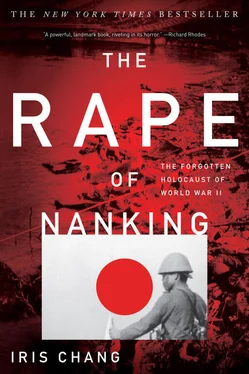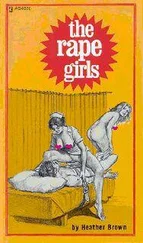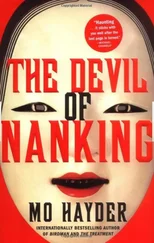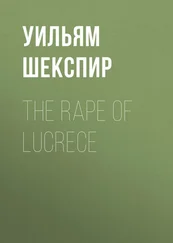176. The information about Yanagawa Heisuke comes from Sugawara Yutaka, Yamatogokoro: Fukumen shogun Yanagawa Heisuke Seidan [Spirit of Japan: Elevated Conversation from the Masked Shogun Yanagawa Heisuke] . Tokyo: Keizai Oraisha, 1971, p. 166. (Mention of his death by heart attack on January 22, 1945, is on p. 234.)
176. “Many would find it difficult” : Herbert Bix, “The Showa Emperor’s ‘Monologue’ and the Problem of War Responsibility.” The Journal of Japanese Studies , summer 1992, vol. 18, no. 2, p. 330.
177. “a priceless historical treasure” : author interview with John Young of the China Institute. In 1957, Young was a professor at Georgetown University and part of a group of scholars who had secured permission to microfilm some of the Japanese Army and Navy Ministries archives seized by American occupation forces in 1945. The following year came the abrupt decision of the United States government to return the documents to Japan—a tremendous blow to Young and the others. (“I was beyond shock, I tell you,” Young recalled. “I was flabbergasted! ”) As a result of this decision, only a small portion of the Japanese military archives were microfilmed before they were boxed up and returned to Japan in February 1958. The greatest regret of his life, Young said, was his failure to foresee this decision, which would have given him and the other scholars the time to microfilm the most important papers in the collection.
The circumstances behind the return were mysterious, and continue to baffle to this day the historians involved in the microfilm project. “This was something I could never understand,” Edwin Beal, formerly of the Library of Congress, said during a telephone interview in April 1997. “We were told that returning these documents was a matter of high policy and should not be questioned.”
Years later, John Young heard rumors that the returned documents were used by the Japanese government to purge those from their ranks who had not been sufficiently loyal to the wartime regime.
177. seriously criticized: In all fairness, it must be pointed out that many of the facts in Bergamini’s book are accurate and that he did discover, in the course of his research, many important new Japanese-language documents for World War II historians. Therefore, scholars have often found Japan’s Imperial Conspiracy to be a valuable—even if flawed and confusing—resource.
178. “In order to conquer the world” : W. Morton, Tanaka Giichi and Japan’s China Policy (Folkestone, Kent, Eng.: Dawson, 1980), p. 205; Harries and Harries, pp. 162–63.
178. Currently no reputable historian : Letter from Rana Mitter to author, July 17, 1997.
178. “inconceivable” : Information about Herbert Bix’s opinion comes from author’s telephone interview with Bix.
179. Back in 1943, Prince Mikasa Takahito : “A Royal Denunciation of Horrors: Hirohito’s Brother—an Eyewitness—Assails Japan’s Wartime Brutality,” Los Angeles Times , July 9, 1994; Merrill Goozner, “New Hirohito Revelations Startle Japan: Emperor’s Brother Says He Reported WWII China Atrocities to Him in 1944; National Doubts Them Now,” Chicago Tribune, July 7, 1994; Daily Yomiuri , July 6, 1994, p. 7.
179. “It helps them acquire guts” : Daily Yomiuri , July 6, 1994, p. 7.
179. “bits and pieces” : Goozner, “New Hirohito Revelations Startle Japan,” Chicago Tribune , July 7, 1994.
179. “extreme satisfaction”: Asahi , Tokyo edition, December 15, 1937.
179. Prince Kanin’s telegram: Ibid.
179. silver vases : Asahi , Tokyo edition, February 27, 1938.
180. Prince Asaka, for one, retired: Bergamini, Japan’s Imperial Conspiracy , p. 46. Information about Asaka’s golf course development comes from Daijinmei Jiten [ The Expanded Biographical Encyclopedia ] (Tokyo: Heibonsha, 1955), vol. 9, p. 16.
CHAPTER 9: THE FATE OF THE SURVIVORS
183. According to Karen Parker: Karen Parker, telephone interview with the author. For Parker’s legal analyses on jus cogens and Japan’s debt to its World War II victims, see Karen Parker and Lyn Beth Neylon, “ Jus Cogens: Compelling the Law of Human Rights,” Hastings International and Comparative Law Review 12, no. 2 (Winter 1989): 411–63; Karen Parker and Jennifer F. Chew, “Compensation for Japan’s World War II War-Rape Victims,” Hastings International and Comparative Law Review 17, no. 3 (Spring 1994): 497–549.
At a seminar for the 58th anniversary of the Japanese invasion of China, scholars urged Chinese victims to demand reparations from Japan. Tang Te-kang, a professor at Columbia University, said that the victims have a precedent in pressing Japan for compensation—set by Japan itself when it demanded and received reparations from China after it and seven other countries invaded China during the Qing dynasty. According to the historian Wu Tien-wei, Chinese victims are entitled to these reparations according to international law; Lillian Wu, “Demand Reparations from Japan, War Victims Told,” Central News Agency, July 7, 1994.
184. One man who was nearly roasted alive: Author’s interview with a survivor (name withheld on request).
184. Another woman whose father was executed: Liu Fonghua, interview with the author, Nanking, July 29, 1995.
185. In the local newspaper, Lewis Smythe saw articles: Oral history interview with Lewis Smythe by Cyrus Peake and Arthur Rosenbaum, Claremont Graduate School, December 11, 1970, February 26, and March 16, 1971, box 228, record group 8, Yale Divinity School Library.
185. “not only responded well to the imperialist policies”: “Zhuiyi Rikou zai Nanjing da tusha (Remember the Great Massacre at Nanking),” reprinted in Xinhua Yuebao 3, pp. 988–91.
185. “Dr. Smythe, there are 100,000 people in this city”: Peake and Rosenbaum oral history interview with Smythe.
186. In 1951 he left his position: “Biographic Sketch and Summary of Contents,” in Peake and Rosenbaum oral history interview with Smythe.
186. Bates also left Nanking: Morton G. Bates, letter to the author, October 7, 1996.
186. David Magee, son of the Reverend John Magee, is certain: David Magee, telephone interview with the author.
186. For example, Edith Fitch Swapp: Edith Fitch Swapp, telephone interview with the author; Fitch, My Eighty Years in China, p. 125. In his book, Fitch describes his problems with memory loss and his visit to a neurologist. “To my considerable relief the doctor reported there was nothing wrong with my brain; I was just suffering from nerve fag. I had been leading a pretty strenuous life, of course, and possibly the terrible memories of those Nanking days had something to do with it too” (p. 125).
186. Robert Wilson, the University of Nanking Hospital surgeon: Marjorie Wilson, telephone interview with the author.
187. “I’m about at the end of my energy”: Minnie Vautrin, diary 1937–40, April 14, 1940, p. 526.
187. “In May 1940 Miss Vautrin’s heath broke”: Minnie Vautrin, diary 1937–40, handwritten note on the bottom of the last page.
187. Her niece recalls that Vautrin’s colleagues: Description of Vautrin’s journey back to the United States, her electroshock treatment, her last communication with her family, and her suicide comes from Emma Lyon, telephone interview with the author.
187. Before he was summoned back to Germany: For Rabe’s last days in Nanking, see Minnie Vautrin, diary 1938–40, February 21, 1928, entry, p. 199; George Rosen report “Deutsche Botschaft China,” document no. 122, National History Archives, Republic of China.
Читать дальше











